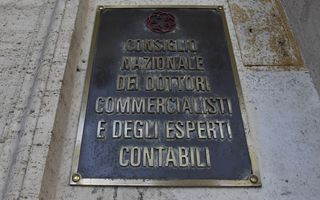(Finance) – The Advise and the National Foundation of Accountants have published the document “Model 231 and ESG factors: the importance of a virtuous connection”, developed by the “ESG-231 interdisciplinary working group”, established within the areas of delegation “Sustainable development (reporting, consultancy, training)” and “Compliance and organizational models of companies”, coordinated respectively by the delegated Councilors Gianluca Galletti, Fabrizio Escheri And Eliana Quintili. The Document delves into the numerous relationships between ESG issues and the regulatory framework provided by Legislative Decree 231/2001, verifying its potential in terms of integrated compliance, with the aim of providing operational tools to professionals who, increasingly numerous, approach consultancy in the 231 and sustainability fields.
“The recent reforms in terms of adequate organizational structures, the introduction of the Code of Corporate Crisis and Insolvency and the increased importance of sustainability strategies in the ESG field, also promoted by European regulations (such as Directive 2022/2464/EU – CSRD) – the three delegated directors write in the introduction – have highlighted the need for businesses to equip themselves with tools for conscious governance. These tools are crucial for prevent crises, manage risks and guide management towards activities that generate value not only for shareholders, but also for stakeholders and society as a whole. In this context, the organizational, management and control model provided for by Legislative Decree 231/2001 has acquired new life and vitality”.
Galletti, Escheri and Quintili underline how “despite being provided for by a regulation that is over twenty years old, the 231 model is not yet widely used, especially in SMEs. Although one of the main functions normatively attributed to the model is that of preventing crimes, it is undeniable that this tool can also play a fundamental role in supporting corporate decisions, orienting them towards activities that create value for stakeholders in an ESG perspective. In terms of Governance, Model 231 is a management tool which, thanks to the traceability of processes and the assessment of risks and responsibilities, fully responds to the need for create appropriate organizational structures to the size and complexity of the company. These structures not only allow for timely detection of crises and guaranteeing business continuity, but also promote proper risk management, in order to ensure the sustainability and development of businesses”.
